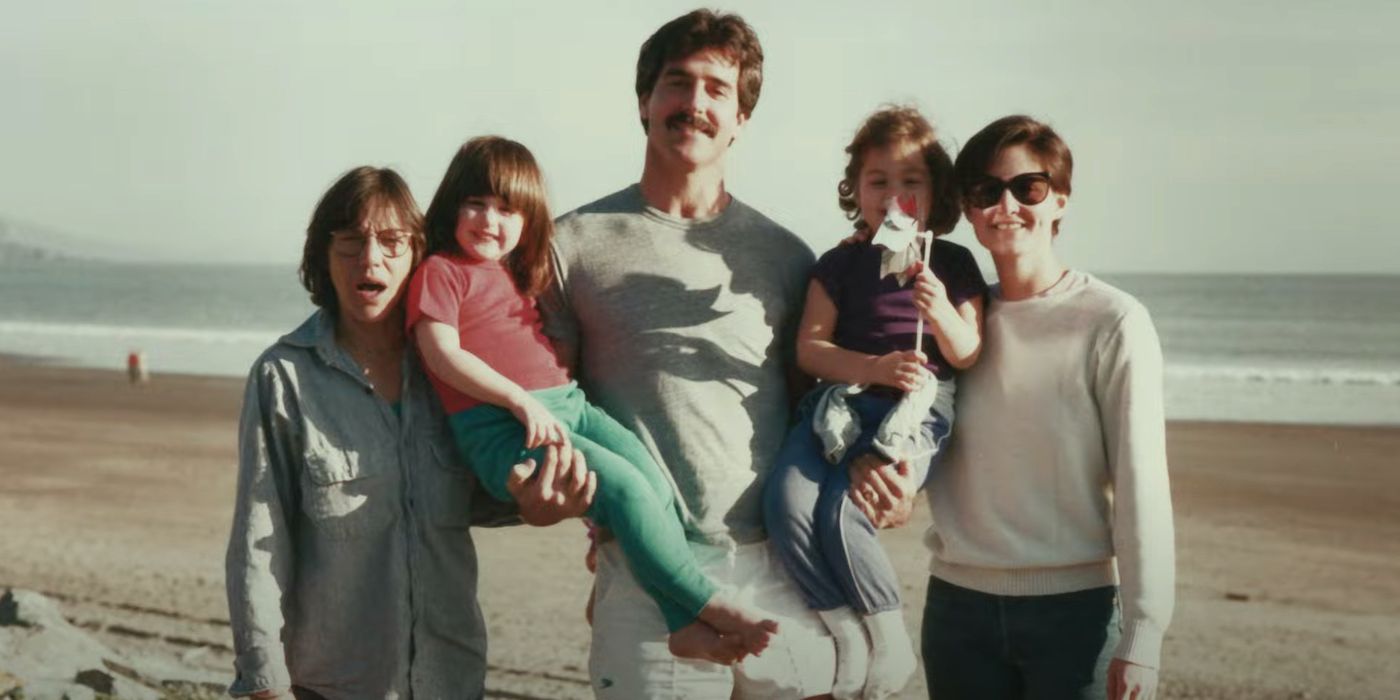Ry Russo-Young was a fairly successful director, making scripted movies about fictional people.
Still, she realized that one of the best stories involved real people – her and her two moms. The result is “Nuclear Family” (shown here), an HBO documentary with new episodes on Sundays, rerunning almost daily.
It’s a story that goes back 40 years, to a time before gay marriages and gay parents. Sandy Russo and Robin Young defied tradition: Using different male donors, each gave birth.
“I was extremely lucky,” said Russo-Young, the younger of two sisters. “My moms always were incredibly supportive of whatever I wanted to do – be it dress-up and imaginary games or running around with a bucket on my head.”
That was by plan, Young said. After her own tough childhood, “I just wanted to really create space for my kids to be whoever they were.”
The story includes some setbacks; one of the biological fathers filed a historic custody suit. But it also shows how life can evolve in one generation.
“I was growing up as a little lesbian in a very straight world that didn’t really have space for who I was …. It was hard to feel I could really be myself,” Young recalled. When she did come out, it created a permanent rift with her family.
For Russo, this happened more gradually. “I was a little tomboy,” she said. “I had crushes on girls; I had crushes on women teachers …. When I was 15, I ran to a shrink, because I was terrified that I was gay. He told me not to worry, everything would be fine.”
It wasn’t; when she finally came out, she was a lawyer, divorced and in her late 30s.
Coming out changed everything. It was “like balloons going off,” Russo said; or like “everything went from black-and-white to color,” Young said.
The two met by accident and clicked quickly. Each wanted to have a baby, with Russo (who is much older) being in a hurry. They recruited two male donors from the opposite coast and used home methods for insemination.
This was a world without legal footing. “There was no such thing as gay marriage,” Russo said. “It just didn’t exist, and we thought it might never exist.” When one of the men surprised them by suing for paternal rights, it became a pioneering court case.
There was even a PBS documentary at the time; footage in this film shows an upbeat teen-ager.
“When I look at that 16-year-old Ry, I definitely see a lot of myself,” Russo said. But back then “I couldn’t embrace the nuance of my own feelings” about the court case.
She went on to success in the overcrowded world of low-budget, indie movies. She’s directed five of them so far (plus a few shorts and TV episodes), winning four film-festival awards and five nominations. All were scripted; she thought about that this time, then switched to a documentary.
That was a disappointment, Russo deadpanned. “We had a whole list of people that we thought should play us. Angelina Jolie was up there.”
– “Nuclear Family,” three episodes, debuting on Sundays
– 10 p.m. Sept. 26 (rerunning at 12:40 a.m.), 10:10 p.m. Oct. 3 (rerunning at 12:50 a.m.), 10 p.m. Oct. 10 (rerunning at 12:35 a.m.).
– Reruns most days. The first episode reruns at 5:40 p.m., Monday (Sept. 27); 11:40 p.m., Wednesday; 10:45 p.m., Thursday; and Saturday night at midnight.
